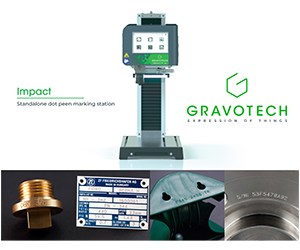No Need for Greed
The normal and moderate desire for gain is not greed.
Protesters demanding economic reform have been making the news lately. They have occupied public squares and city parks, where waving signs and chanting slogans is almost a daily ritual. Many of their objections often focus on what they call greed, as used in phrases such as corporate greed, capitalist greed or Wall Street greed. Our economic system is accused of being incurably infected with greed, and some are calling for it to be abolished.
The protesters may have a point about greed. It does seem that greed in high places could have played a part in creating our current, persistent, economic woes. But is our economic system inherently corrupt? Is it really based on greed? Must we reluctantly accept greed as a necessary evil? Answering these questions in a serious way must start with some serious thinking about greed.
First off, we have to be careful about what we characterize as greed. Greed is evil, so accusations are not trivial. In the extreme, greedy behavior can disrupt the financial underpinnings of a nation. It can also lead to grievous violations of human rights and abuses of nature. No manner of greed may be justified or defended.
Greed is the excessive desire for something, usually money or material wealth, but fame, glory and power can also be the targets of excessive desire. Greed is objectionable in its excessiveness. It is wanting too much of something; it is wanting something too much.
However, a desire to gain wealth, or any gratifying thing, is not wrong in itself. This is a natural impulse that occurs in almost all of us. How we manage these desires determines their morality. Thus, the normal and moderate desire for gain is not greed. This is a crucial point, because when we talk about economic issues, we have to admit that the desire for gain is an inescapable factor.
For example, desire for gain becomes the profit motive in the free enterprise system. It’s the reason people invest in business ventures, acquire the means of production and pool resources to form corporations. The desire for gain is exactly what democratic capitalism channels and leverages by freeing individuals to make their own choices about how best to pursue their personal interests in a competitive marketplace. This system is not dependent on greed—no element of excessiveness is welcome or required.
In fact, taking steps to prevent excesses from causing economic harm is essential. For this reason, our system has to be regulated by convention, governed by the rule of law and sustained by standards of personal moral responsibility. Otherwise, it cannot remain open, free and productive. Like all human affairs, it will be imperfect, and therefore in constant need of reform and renewal. No economy can be immune to the effects of greed, because moral responsibility is prone to weaken or fail. Greed must be treated as an aberration, an unwelcome departure from the norm.
Attempts at economic reform must be earnestly considered and prudently applied. In doing so, we must distinguish between moderate and immoderate behavior, with an appeal to the conscience as a guide. Finally, urgent concern about greed wherever it arises should not be limited to angry citizens camped in the streets.
Read Next
3 Mistakes That Cause CNC Programs to Fail
Despite enhancements to manufacturing technology, there are still issues today that can cause programs to fail. These failures can cause lost time, scrapped parts, damaged machines and even injured operators.
Read MoreThe Cut Scene: The Finer Details of Large-Format Machining
Small details and features can have an outsized impact on large parts, such as Barbco’s collapsible utility drill head.
Read More












.png;maxWidth=300;quality=90)





